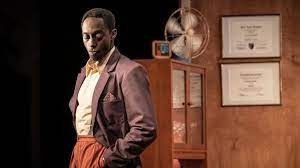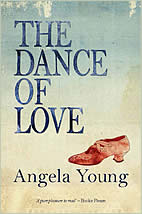In a 2013 article by Steve Taylor PhD in Psychology Today, good is defined as:
a lack of self-centredness … the ability to empathise with other people, feel compassion … and put [others’] needs before your own. It means … sacrificing your own well-being for the sake of others. It means benevolence, altruism and selflessness, and self-sacrifice towards a greater cause — all qualities which stem from a sense of empathy. It means being able to see beyond the superficial difference of race, gender or nationality and relate to a common human essence beneath them.
Over the last few weeks my other half and I have seen three plays and one film that treat this subject: Good by C.P. Taylor with David Tennant in the lead role; The Good Person of Szechwan by Bertolt Brecht, with Ami Tredrea in the lead role; A Good Person by Zach Braff with Morgan Freeman in the lead role (when I say lead role I mean the part that’s associated with good), and in early May we saw Retrograde by Ryan Calais Cameron with Ivanno Jeremiah in the lead role.
top: David Tennant, Ami Tredrea (in Good & The Good Person of Szechwan)
below: Florence Pugh & Morgan Freeman (in A Good Person)
below them: Ivanno Jeremiah (Retrograde)
David Tennant’s character, John Halder, changes chillingly from book-loving academic to book-burning SS officer; Ami Tredrea’s character, Shen Te, is given a large sum of money that she schemes and deceives with, in order to survive in a capitalist world; Morgan Freeman’s character, Daniel, is a recovering alcoholic who wants to help oxycontin-addicted Allison kick her habit (Allison is played by Florence Pugh) and Ivanno Jeremiah’s character is an imagined Sidney Poitier who, in reality, faced black-listing by the House UnAmerican Activities Committee, but who, as his imaginary self in Retrograde, is presented with a contract by a big Hollywood studio which includes a clause that requires him to denouce Paul Robeson (his real-life much-admired friend).
All four characters are faced with temptations (power, money, alcohol and fame in that order) but all in the end resist and do the ‘good’ thing. Except John Halder, whose moral detachment and complete lack of empathy allow him to be seduced into joining the Nazi Party.
Shen Te realises she can’t be good all the time but she can be better; Daniel will always be tempted by alcohol but, because he knows exactly what it’s like to be an addict, by example he shows Allison it’s possible to recover, forgive and rediscover your better self. Sidney Poitier is subjected to abhorrent racism and emotional blackmail and, under severe racist pressure, considers signing the contract. But in the end he tears it up: he will not denounce his old friend for the sake of Hollywood fame.
None of these characters are good by default or by mistake. They’re all faced with complex dilemmas and they’re all tempted to do the wrong, the bad thing. But only one succumbs. What the three who come good have in common is that they, eventually, unearth the courage and the empathy to ditch their selfishness and put other people first.









Leave a Reply